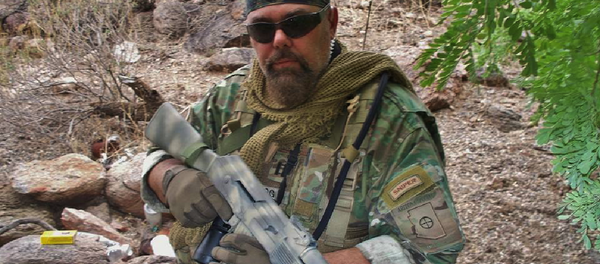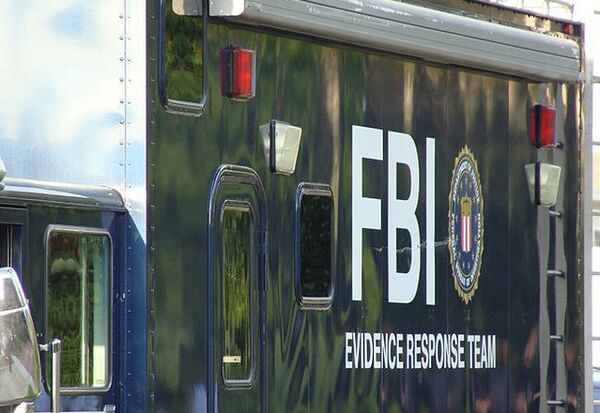The family of Michael Romano Jr., who was murdered in Massachusetts by mobsters on September 1, 1994, are suing the FBI, on the basis that his killers were working as informants for the organization, and fatally shot the wrong target.
Romano's former wife and two children are seeking US$60 million from authorities — their lawsuit, filed October 20, claims wrongful death and gross negligence by FBI agents led to the death.
Romano was 20 years old when he was shot at close range, while changing a flat tire in Everett, Massachusetts.
The suit states he was mistaken for intended target Enrico Ponzo.
Informants in the Mafia
Before the killing, the FBI was using reputed mafia leader Mark Rossetti and Stephen Flemmi, former Winter Hill Gang member and ex-partner of James "Whitey" Bulger, as informants — both men were close criminal associates of "Cadillac Frank" Salemme, former boss of the New England La Cosa Nostra.
The FBI knew Salemme, Rossetti and Flemmi were responsible for several murders in the Boston area, and were planning to seize control of organized crime there.
Part of that plan involved killing Enrico Ponzo, among others.
Ponzo himself was convicted in 2013 of several crimes, including the 1989 attempted killing of Salemme.
'Unqualified, Unsuitable, Inappropriate'
Because of the alleged activities by the mobsters, the FBI shouldn't have considered Rossetti a qualified informant, the family say — instead FBI agents did not follow guidelines and allowed or even encourage Rossetti to engage in illegal activities and murder.
"Agents of the FBI knew or should've known of the intended shooting of Enrico Ponzo that led to the death of Michael Romano Jr. through their regular contacts with Rossetti and other informants for the FBI. Despite such knowledge, the agents failed to take any steps to prevent the shooting and failed to properly control the activities of their cooperating informant Rossetti. Rossetti was not qualified, suitable or appropriate to serve either as a cooperating witness or informant for the FBI," the suit states.
It's not the first time a relative of Michael Jr. has asserted the FBI bears responsibility for his death.
In 2011, Romano's father, Michael Sr., also suggested the FBI's determination to protect Rossetti got his son killed, and the bureau had allowed Rossetti and his associates to shoot and kill with impunity.
FBI Turns a Blind Eye
The FBI gives informants and undercover agents permission to engage in "otherwise illegal activity" (OIA), according to its own reports.
There are some crimes the FBI is theoretically forbidden from authorizing, such as acts of extreme violence and obstruction of justice (e.g. witness tampering, entrapment, fabrication of evidence), or "initiating or instigating" a crime, or a plan to commit one.
One such protocol is the FBI must submit an annual report to the Justice Department's Criminal Division and National Security Division, describing the total number of times each FBI Field Office authorized a Confidential Human Source to engage in OIAs.
Authorized crimes by informants are divided into tiers.
The first covers very serious activities, such as the commission of any act of violence; corrupt conduct by a public official in a high-level decision-making or sensitive position in federal, state, or local government; manufacturing, importing, exporting, possession, or trafficking of controlled substances in a quantity equal to or exceeding quantities specified in US Sentencing Guidelines (90 kilos of heroin, 450 kilos of cocaine, 90,000 kilos of marijuana); financial loss exceeding US$1.5 million.
The second tier covers crimes constituting "a misdemeanor or felony under federal, state, or local law if engaged in by a person acting without authorization."
Federal Terrorism Cases
Mother Jones had estimated back in 2011 that of the 508 Americans prosecuted in terrorism-related cases in the decade since that fateful day, 243 were involved with Federal Bureau of Investigation informants, while 158 were involved with undercover agents.
Of those cases, an informant or undercover operative actively led 49 defendants in their terrorism plots.
While authorities claim undercover agents serve to help derail planned attacks before they occur, a 2014 Human Rights Watch report suggests in fact authorities actively assist individuals in committing crimes they would never accomplish on their own, and may well have never planned if it wasn't for official abetting of key elements of intended attacks.





